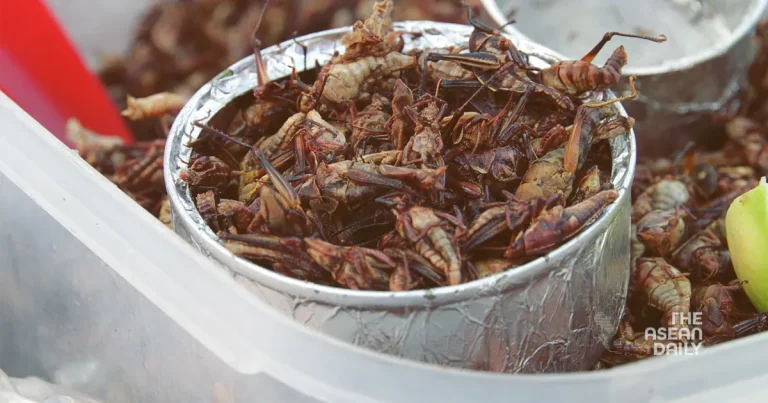9-7-2024 (SINGAPORE) In a groundbreaking move that could reshape the city-state’s culinary landscape, Singapore has given the green light for the import of insects and insect products for human consumption and animal feed. This decision, announced by the Singapore Food Agency (SFA) on Monday, marks a significant step towards diversifying the nation’s food sources and bolstering its food security.
The newly released insect regulatory framework outlines guidelines for the import of 16 specific insect species, including certain types of grasshoppers, moths, and crickets. This move aligns with Singapore’s ambitious ’30 by 30′ goal, which aims to have 30% of the country’s nutritional needs met locally by 2030.
Dr. Lim Joo Hwa, a food security expert at Nanyang Technological University, commented on the development: “This initiative is a testament to Singapore’s innovative approach to food sustainability. By embracing entomophagy, we’re not only diversifying our food sources but also potentially reducing our carbon footprint.”
The SFA’s circular stipulates strict requirements for importers, emphasising that insects and insect products intended for direct human consumption must undergo sufficient treatment to eliminate any pathogens. This precautionary measure ensures that the new food items meet Singapore’s rigorous food safety standards.
Singapore’s decision to include insects in its approved food list is not without precedent globally. North America and the European Union have already sanctioned insect consumption, while in neighbouring Thailand, grasshoppers and other insects are popular snacks.
Each of the 16 approved insects is permitted for import only at specific life stages. For instance, crickets and locusts may only be imported as adults, while mealworms and grubs are restricted to the larval stage.
The move has garnered support from international bodies such as the Food and Agriculture Organisation of the United Nations, which has long advocated for the acceptance of insects as a nutritious, environmentally sustainable, and underutilised food resource.
Local restaurateur, Sarah Tan, expressed excitement about the culinary possibilities: “This opens up a whole new world of ingredients for us to explore. I’m already thinking about how to incorporate these insects into our menu in ways that will appeal to Singaporean palates.”
However, the initiative has also sparked debates among consumers. John Lee, a 45-year-old IT professional, voiced his concerns: “While I understand the environmental benefits, it might take some time for many of us to get used to the idea of eating insects.”




